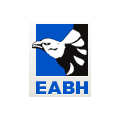Primary and Secondary Schools in Brazil

EABH - The American School of Belo Horizonte
Belo Horizonte, Brazil
EABH was founded in 1956 in Belo Horizonte, Minas Gerais Brazil as a missionary school. Today it is the only International Baccalaureate (IB) School in Minas Gerais. The school provides excellent educational services so that students can easily get admitted to prestigious universities in United States, Europe and Brazil. The school has two basic academic blocks: Lower School, Upper School, along with a Brazilian program and after EABH program. Apart from studies, students actively take part in soccer, volleyball, and basketball. After-school activities include martial arts, music, art,... See full description.
Primary and Secondary Schools in Brazil by City:
Belo HorizonteAbout Primary and Secondary Schools in Brazil
Education, particularly at the primary and secondary levels, is a major priority of the Brazilian government and of Brazilian society in general. With a significant rural population that remains largely uneducated and a burgeoning economy poised to take its place as one of the major players in the global marketplace, the need for education in Brazil has never been greater. Moreover, the right to education is enshrined in the Brazilian constitution, adding an extra weight to the government’s efforts to extend academic opportunities to all citizens. Interestingly, the constitution defines education in both economic and humanistic terms – the goal of the Brazilian primary and secondary education system is not just to prepare people for their working lives, but also to help them grow into better citizens and better human beings.
Primary and secondary schooling in Brazil is composed of three levels: Preschool, Primary, and Secondary. The first level is wholly optional, but is provided for free by the government. Brazilian children under the age of 6 have the option of attending preschools to help them gain fundamental reading skills and other skills that will help them to succeed in school. There are also privately-owned preschools that parents can send their children to.
After preschool, there is mandatory schooling from age 6-18. The first section of this mandatory stage, which last from age 6-14 is Ensino Fundamental, or primary school. The main goal of Fundamental is gaining literacy, which is seen as an indispensable skill for all citizens. The rest of the core curriculum comprises federally-mandated courses in Portuguese, history, geography, science, math, the arts, and often English or, in some cases, Spanish. In addition to the government curriculum, individual schools have supplementary courses based on local and regional needs. There are also special schools for teenagers and adults who for whatever reason have not yet completed their basic education – the uneducated rural population in Brazil makes it necessary to have classes available so that adults can learn literacy and basic math skills that they may not have gained as children.
After Ensino Fundamental, students graduate to Ensino Médio, where they have an additional three years of mandatory schooling. The curriculum at this level includes typical subjects such as history, math, physics, and literature, and also has mandatory courses in philosophy and sociology. These are seen as essential areas of knowledge for students’ growth as students and as people. Several different kinds of professional training are also available at the Médio level, and these training programs are also designed to cater to the economic needs of different areas of the country. For example, teenagers in rural areas might have the option of taking courses related to agriculture, whereas those in the cities might learn computer skills, office skills, or skilled trades such as plumbing and electronics.
Primary and secondary schooling in Brazil is composed of three levels: Preschool, Primary, and Secondary. The first level is wholly optional, but is provided for free by the government. Brazilian children under the age of 6 have the option of attending preschools to help them gain fundamental reading skills and other skills that will help them to succeed in school. There are also privately-owned preschools that parents can send their children to.
After preschool, there is mandatory schooling from age 6-18. The first section of this mandatory stage, which last from age 6-14 is Ensino Fundamental, or primary school. The main goal of Fundamental is gaining literacy, which is seen as an indispensable skill for all citizens. The rest of the core curriculum comprises federally-mandated courses in Portuguese, history, geography, science, math, the arts, and often English or, in some cases, Spanish. In addition to the government curriculum, individual schools have supplementary courses based on local and regional needs. There are also special schools for teenagers and adults who for whatever reason have not yet completed their basic education – the uneducated rural population in Brazil makes it necessary to have classes available so that adults can learn literacy and basic math skills that they may not have gained as children.
After Ensino Fundamental, students graduate to Ensino Médio, where they have an additional three years of mandatory schooling. The curriculum at this level includes typical subjects such as history, math, physics, and literature, and also has mandatory courses in philosophy and sociology. These are seen as essential areas of knowledge for students’ growth as students and as people. Several different kinds of professional training are also available at the Médio level, and these training programs are also designed to cater to the economic needs of different areas of the country. For example, teenagers in rural areas might have the option of taking courses related to agriculture, whereas those in the cities might learn computer skills, office skills, or skilled trades such as plumbing and electronics.

